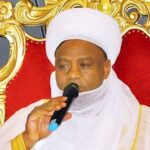The UN-REDD Programme is the United Nations collaborative initiative on Reducing Emissions from Deforestation and forest Degradation (REDD) in developing countries. The programme was launched in 2008 and builds on the convening role and technical expertise of the Food and Agriculture Organisation of the United Nations (FAO), the United Nations Development Programme (UNDP) and the United Nations Environment Programme (UNEP).
The UN-REDD Programme which is a mitigation mechanism to address the impact of climate change, supports nationally-led REDD+ processes and promotes the informed and meaningful involvement of all stakeholders, including indigenous peoples and other forest-dependent communities, in national and international REDD+ implementation.
Nigeria’s forests, which currently extend over 9.6 million hectares, have been dwindling rapidly over the past decades. The current deforestation rate is estimated at 3.7 per cent, which is one of the highest in the world. The Federal Government of Nigeria, reinforced by pioneering efforts from Cross River State, started to engage in REDD+ in 2009, and became a partner country of the UN-REDD Programme in February 2010.
The Nigeria REDD+ Readiness Programme envisions a two-track approach to achieve REDD+ readiness in the country, based on the development of institutional and technical capacities at federal level, and carrying out intense institutional strategy-building and demonstration activities in Cross River State.
During its seventh policy board meeting in 2011, the UN-REDD Programme approved US$4 million in funding for Nigeria’s national programme for Reducing Emissions from Deforestation and Forest Degradation (REDD+).
These critical funds support the capacity of the Nigerian national government to prepare and implement REDD+ strategies with the active involvement of local stakeholders, including indigenous peoples and other forest-dependent communities.
Officials from the National REED office were in Akure, Ondo State, at the weekend for a scooping mission to assess the state’s preparedness to enlist unto the programme.
The state had in a letter in 2012 indicated its interest to join the programme and the request came on the heels of the permission granted Nigeria to enlist two other states unto the programme following the successes recorded so far by Cross River State, the only state in Nigeria participating in the UN-REDD programme.
At a courtesy visit on the Governor of Ondo State, Mr Olusegun Mimiko, by the scooping team from the National REDD programme office, the state reiterated its determination to enlist unto the programme, saying that it has one of the most preserved forests in the country.
Mimiko who was represented during the call by the Secretary to the State Government, Dr Aderotimi Adelola, said that the state had taken pains to follow the path of green development hence the planting of over five million trees in the last five years.
“We are committed as a state to become part of these global initiatives. We will not want to be left behind knowing that this programme has the potentials of changing the livelihood of our forest communities,” the governor added.
The governor who noted that the state has 14 forest reserves also said: “We are prepared to fulfil all the indices required by the United Nations to be part of this laudable initiative.”
Mr Tunde Atere, Commissioner for Natural Resources in the state, said the UN-REDD initiative was a star programme that has the capacity to protect and conserve forests for future generations.
“We have demonstrated our interest to be part of the programme with an official letter to the Nigeria programme office. Our quest to become part of the UN-REDD Programme is based on our belief that it will change the way our forest is being handled. It will bring about income for the state and forest based communities,” Atere said.
Mr Salihu Dahiru, Director of Forest Conservation, Federal Ministry of Environment, informed the state that the UN-REDD Programme was introduced as a result of the challenges of climate change.
Dahiru who is the National Coordinator for the Nigeria UN-REDD Programme, said that only Cross River State was benefiting from the programme while eight others have indicated their desire to come on board.
He said the scooping mission in Ondo was to enable the National UN-REDD office look at what is on ground in Ondo as well as to assess the level of its preparedness to join the programme.
He said the indices set out by the United Nations that states were required to meet before being enlisted include the political will on the part of the state, the willingness of the state to join the programme and the involvement of forest based communities in the management of forest reserves.
 Join Daily Trust WhatsApp Community For Quick Access To News and Happenings Around You.
Join Daily Trust WhatsApp Community For Quick Access To News and Happenings Around You.


